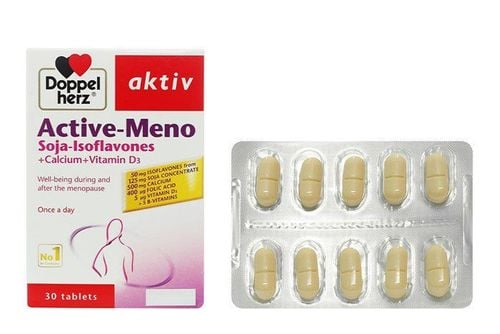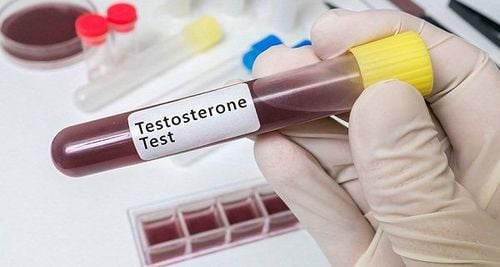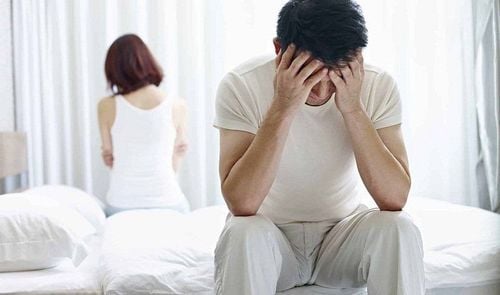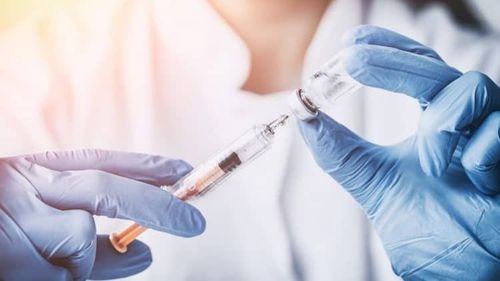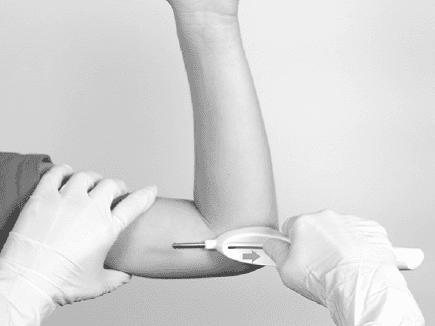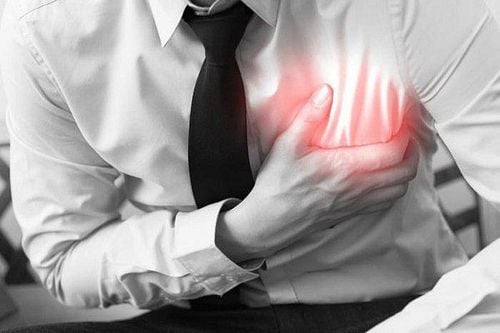This is an automatically translated article.
The article was consulted with Specialist Doctor II Pham Thi Tuyet Mai - Obstetrician and Gynecologist - Department of Obstetrics and Gynecology - Vinmec Hai Phong International General Hospital.Many people think that the concept of testosterone is only found in men, but in fact this hormone is also present in women. Even low testosterone levels in women are a health concern.
1. Testosterone Levels in Women
Women's testosterone levels throughout life are naturally fluctuating, according to the menstrual cycle, and even fluctuating at different times of the day. Women with low testosterone are limited in producing new blood cells, maintaining sex drive, or increasing levels of other sex hormones.
Testosterone is a hormone belonging to the androgen group. Testosterone levels in women affect:
Fertility. Sexual desire. The ability to produce red blood cells. Muscle mass and fat distribution. Most people think of testosterone as a hormone that symbolizes male characteristics, but the truth is that both men and women need a certain amount of testosterone. On average, men have more testosterone than women. In women, the adrenal glands and ovaries produce small amounts of this hormone.
According to research from the University of Rochester Medical Center, testosterone levels in women usually range from 15 to 70 ng/dl (nanograms of testosterone per deciliter of blood). However, there are no specific guidelines for what testosterone levels should be called "low" in women.
2. Symptoms of low testosterone in women
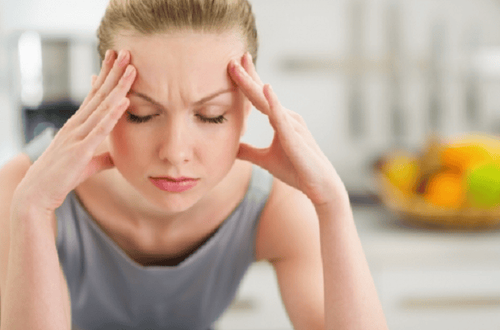
Women with low testosterone will feel tired and lethargic. Low testosterone in women can cause one or more of the following symptoms:
Lethargy. Muscle weakness. Tired. Sleep disorders . Reduced sex drive. Reduced pleasure. Weight gain. Reproductive disorders. Irregular menstrual cycle. Vaginal dryness. Loss of bone density Because symptoms associated with low testosterone are so common, doctors will screen for other conditions with similar symptoms before making an accurate diagnosis. These conditions include:
Depression . Worried. Chronic stress. Thyroid disease . Perimenopause transitions to menopause.
Trắc nghiệm: Tìm hiểu về “bí mật” của các Hormone
Hormone hầu như quyết định tới toàn bộ các chức năng quan trọng của cơ thể. Nó “làm việc” miệt mài để phát tín hiệu và điều hòa sự hoạt động của các cơ quan trong cơ thể, mô cũng như tế bào nhất định. Để hiểu hơn về vai trò cũng như cách thức các hormone tác động lên cơ thể, bạn có thể làm bài trắc nghiệm sau đây.
Nguồn tham khảo: webmd.com
3. Causes of testosterone deficiency in women
Women's testosterone levels tend to decrease with age and menopause. The two main causes of low testosterone in women are:
The decline in hormone levels is a normal result of menopause and aging. Disorders of the ovaries, or pituitary, or adrenal glands. Testosterone levels in women naturally decrease with age. Besides, other hormones, such as estrogen, also decrease over time; especially when women reach menopause.
At menopause, women have less testosterone because the ovaries produce less of the hormone. In addition, medications for menopausal women also work to lower testosterone levels, such as oral estrogen
Some disorders with the ovaries and adrenal glands can also lead to lower testosterone levels, eg oophorectomy or adrenal insufficiency .
4. Diagnosis of low testosterone in women
Currently, there are not many studies on the treatment of low testosterone in women. In contrast, scientists are generally more concerned with high testosterone in women and its related effects.
Even in 2014, there was a recommendation against routine testosterone measurement in women, as studies have yet to prove a link between low testosterone levels and noticeable symptoms. .
On the other hand, if a woman is examined with any of the symptoms listed above, her doctor is more likely to screen for and diagnose other more common conditions or disorders, with higher priority is low testosterone.
In general, to diagnose low testosterone in women, a doctor will start with a physical exam and ask about any symptoms. If signs of low testosterone levels are suspected, the doctor will order a blood test.
In case you haven't reached menopause, your doctor will probably advise on the best time to check your testosterone levels. Because the symptoms experienced may be due to fluctuations in hormones during the menstrual cycle.
5. Treatment of low testosterone in women
In terms of treatments, improving sleep quality helps reverse the symptoms of low testosterone. In addition, some estrogen replacement drugs can supplement testosterone. However, the amount of testosterone in the drug is often not enough to raise the concentration to a steady level, or the body is not able to absorb it.
Some doctors may prescribe testosterone supplements to their patients by injection or orally in pill form, in the hope that these measures will have the same effect on women as men: Increase vitality, decrease fatigue and improve libido.
However, many doctors say that women should not take testosterone. In fact, there are very few female testosterone supplements that have been approved by the U.S. Food and Drug Administration (FDA). This is because of possible side effects for this class of drugs, including:
Hair loss. Acne breakouts. Lots of hair growth. Voice softening. Enlarged vagina. In 2014, some scientists advised against treating low testosterone in women due to a lack of research. However, with one exception, women with a condition called libido disorder affecting their married life should be treated.
To solve the problem of low testosterone in women, doctors will prefer to prescribe replacement therapy to treat symptoms and make lifestyle changes, including:
Sex therapy. Stress management. Get enough sleep. Build a healthy diet. Take an over-the-counter medication to supplement dehydroepiandrosterone (DHEA). DHEA is a steroid hormone also produced by the adrenal glands and is considered a replacement therapy for testosterone. The side effects of DHEA supplementation are similar to those experienced with excess testosterone.
However, the American Endocrine Society does not recommend regular supplementation with DHEA, because researchers still do not have evidence to prove the safety and effectiveness of DHEA use in the long term.
Thus, the treatment of low testosterone levels in women often prioritizes lifestyle changes. Living a healthier, more active lifestyle is an effective way to treat symptoms of low testosterone in women.
Please dial HOTLINE for more information or register for an appointment HERE. Download MyVinmec app to make appointments faster and to manage your bookings easily.
Reference source: medicalnewstoday.com




